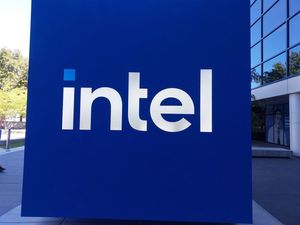
SPRINGFIELD, MA – October 28, 2025 – Western New England Bancorp, Inc. (NasdaqGS: WNEB), the parent company of Westfield Bank, today announced that its Board of Directors has declared a quarterly cash dividend of $0.07 per share. This announcement arrived concurrently with the release of the company's robust financial results for the three and nine months ended September 30, 2025, painting a picture of solid performance in a dynamic economic landscape.
The declaration of a consistent cash dividend signals the company's confidence in its financial stability and its ongoing commitment to returning value to shareholders. This move, coupled with a significant year-over-year increase in net income and strong revenue figures for the third quarter, provides a positive outlook for investors and stakeholders. The convergence of these two key financial events underscores a period of strategic execution and operational efficiency for the regional banking institution.
Detailed Financial Performance and Shareholder Returns
Western New England Bancorp's Board of Directors approved a quarterly cash dividend of $0.07 per share, which is scheduled to be paid on or about November 26, 2025, to shareholders of record as of November 12, 2025. This consistent payout reflects a stable approach to capital management and shareholder remuneration.
The dividend declaration was made alongside the company's unaudited financial results for Q3 2025, which revealed several key performance indicators. The bank holding company reported a net income of $3.2 million for the quarter, marking an impressive 66% increase compared to the $1.9 million recorded in Q3 2024. Diluted earnings per share (EPS) also saw a substantial rise, reaching $0.16 for Q3 2025, up from $0.09 per diluted share in the prior year's comparable quarter. While the EPS figure did miss analyst estimates of $0.19 per share by $0.03, the overall revenue picture was more favorable. Western New England Bancorp posted total revenue of $33.2 million, with revenue net of interest expense coming in at $21.3 million, successfully exceeding Street forecasts.
Further bolstering the positive report, the company highlighted significant growth trends. Total loans increased by $60.8 million, or 2.9%, year-to-date, demonstrating effective lending strategies. Core deposits also showed healthy expansion, growing by $97.4 million, or 6.3%, year-to-date, indicating strong customer relationships and deposit-gathering capabilities. The net interest margin for the quarter stood at a respectable 2.81%, while net interest income experienced a substantial 22.8% year-over-year increase, reaching $18.1 million. This growth in net interest income was primarily driven by an increase in both commercial and residential real estate loans, underscoring a thriving loan portfolio.
Implications for Western New England Bancorp and the Regional Banking Sector
For Western New England Bancorp, Inc. (NasdaqGS: WNEB), the declaration of a dividend concurrent with strong Q3 results is a clear win. It reinforces investor confidence in the company's financial health and its ability to generate sustainable earnings. The growth in net income, revenue, and core deposits suggests effective management and a robust business model, potentially leading to increased investor interest and stock stability. The dividend itself directly benefits shareholders, providing a tangible return on their investment and signaling a commitment to long-term value creation. While the slight miss on EPS estimates might lead to minor short-term adjustments, the overall positive trajectory in core banking metrics is likely to outweigh this.
The performance of Western New England Bancorp also offers insights into the broader regional banking sector. In an environment often characterized by fluctuating interest rates and competitive pressures, WNEB's ability to significantly grow net income, loans, and deposits could set a positive benchmark. Other regional banks in the Northeast and across the U.S. will likely observe WNEB's strategies, particularly its success in expanding commercial and residential real estate loans and attracting core deposits. This could spur competitors to evaluate their own lending practices and deposit acquisition strategies. Conversely, regional banks struggling with deposit outflows or stagnant loan growth might face increased scrutiny, as WNEB's results demonstrate that growth is achievable even in challenging conditions.
Wider Significance: Navigating a Shifting Financial Landscape
Western New England Bancorp's strong performance and dividend declaration unfold against a backdrop of evolving trends within the regional banking sector. The general outlook for regional banks in 2025 is broadly positive, buoyed by expectations of a steepening yield curve, an uptick in loan activity, and potential for increased mergers and acquisitions. WNEB's success in growing its loan portfolio, particularly in commercial and residential real estate, aligns with the broader expectation of mid-single-digit loan growth across the U.S. banking sector, stimulated by anticipated interest rate declines.
The prevailing interest rate environment is a critical factor influencing net interest margins (NIMs) and loan growth. The Federal Reserve initiated its first interest rate cut in September 2025, with further cuts anticipated throughout the year. For regional banks, this easing monetary policy is generally beneficial for NIMs, as deposit costs, which are often more sensitive to rate changes, tend to decrease faster than the yields on loans. This "timing gap" can enhance profitability, a trend that WNEB's 2.81% net interest margin and increased net interest income appear to capitalize on. Lower rates are also expected to fuel borrowing demand, contributing to the observed loan growth.
However, the regional banking sector is not without its significant challenges, particularly concerning commercial real estate (CRE). Regional banks have a disproportionately high exposure to CRE debt, with approximately 44% of their total loans tied to this sector, compared to 13% for larger institutions. With over $1 trillion in CRE loans scheduled to mature by the end of 2025, there are substantial refinancing challenges, especially if a "higher-for-longer" interest rate environment persists in certain segments. This scenario is expected to lead to elevated credit losses, with office loan delinquency rates reportedly nearing 2008 peaks. WNEB's growth in commercial real estate loans, while contributing to current income, also means increased exposure to this vulnerable segment, a factor that investors and analysts will closely monitor.
Regulatory and policy developments also cast a long shadow over regional banks. The proposed Basel III Endgame framework, set to begin its three-year transition period on July 1, 2025, will impose more stringent capital requirements on regional and mid-sized banks with over $100 billion in assets. These institutions may need to hold an additional 3-4% in regulatory capital, requiring significant effort in data management and workflow re-engineering. Furthermore, the FDIC has shifted its resolution planning strategy, prioritizing "weekend sales" for failed banks, and is working to enhance the bidding process. These changes, alongside potential adjustments to the Community Reinvestment Act (CRA), mean regional banks must remain agile and proactive in their compliance and risk management frameworks.
What Comes Next: Navigating Growth and Regulatory Headwinds
In the short term, investors will be closely watching Western New England Bancorp's (NasdaqGS: WNEB) stock performance following this dual announcement. The positive earnings growth and dividend declaration could provide a floor for the stock, while the slight EPS miss might temper immediate upward momentum. The market will also scrutinize the bank's Q4 2025 outlook for any guidance on how it plans to sustain its growth trajectory amidst the evolving interest rate environment and potential economic shifts. Continued vigilance on net interest margin trends and deposit costs will be crucial as the Federal Reserve proceeds with further rate cuts.
Looking further ahead, Western New England Bancorp will need to strategically navigate both opportunities and challenges. The sustained growth in core deposits and loans positions the bank well for future expansion. However, managing its commercial real estate portfolio will be paramount, given the broader industry vulnerabilities. The bank will need robust risk management practices and potentially a diversified lending strategy to mitigate potential credit losses in this segment. Strategic pivots could include further diversification of its loan book, enhancing digital banking capabilities to attract and retain deposits, and exploring inorganic growth opportunities through mergers and acquisitions within the regional banking space, an area where increased activity is anticipated.
Market opportunities may emerge from the ongoing consolidation in the regional banking sector, allowing well-capitalized and efficiently run institutions like WNEB to potentially acquire smaller banks. Challenges will persist in the form of intense competition for deposits, the need to maintain credit quality across all loan segments, and the substantial compliance efforts required by new regulations such as the Basel III Endgame. Potential scenarios for WNEB range from continued steady earnings growth, driven by effective loan origination and deposit gathering, to facing headwinds if the CRE market experiences a significant downturn or if regulatory compliance costs prove more burdensome than anticipated.
Comprehensive Wrap-Up: A Resilient Regional Player
Western New England Bancorp's declaration of a quarterly cash dividend, concurrent with its strong Q3 2025 financial results, underscores a period of significant operational achievement and shareholder commitment. Key takeaways include a substantial 66% year-over-year increase in net income, robust growth in both loans and core deposits, and a healthy net interest income, all signaling a resilient and well-managed regional banking institution. The dividend serves as a tangible affirmation of the company's financial strength and its dedication to providing consistent returns to its investors.
Moving forward, the market will likely view Western New England Bancorp with cautious optimism. While the slight miss on diluted EPS warrants attention, the overall positive performance in core banking metrics, particularly revenue and net interest income, paints a compelling picture. The bank appears well-positioned to capitalize on the anticipated tailwinds in the regional banking sector, including a more favorable interest rate environment that could further boost net interest margins and stimulate loan demand.
The lasting impact of this announcement will depend on WNEB's ability to sustain its growth momentum while adeptly navigating the broader industry challenges, notably the vulnerabilities within the commercial real estate market and the increasing demands of regulatory compliance, such as the Basel III Endgame. Investors should closely monitor future earnings reports for continued growth in net interest income and loan portfolios, trends in the net interest margin, and the overall health and diversification of its loan book, especially its CRE exposure. The bank's strategic response to these industry-wide dynamics will be critical in shaping its trajectory in the coming months and years.
This content is intended for informational purposes only and is not financial advice





